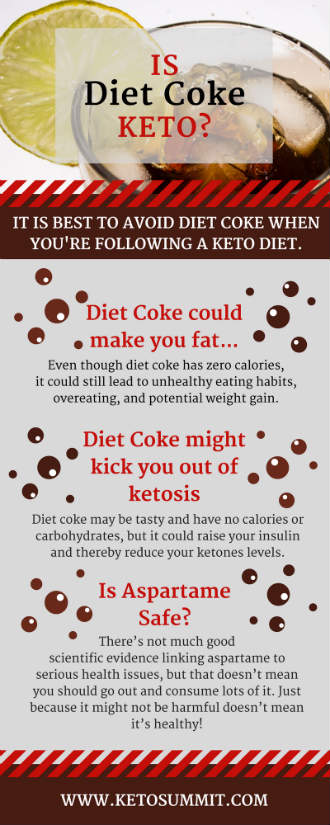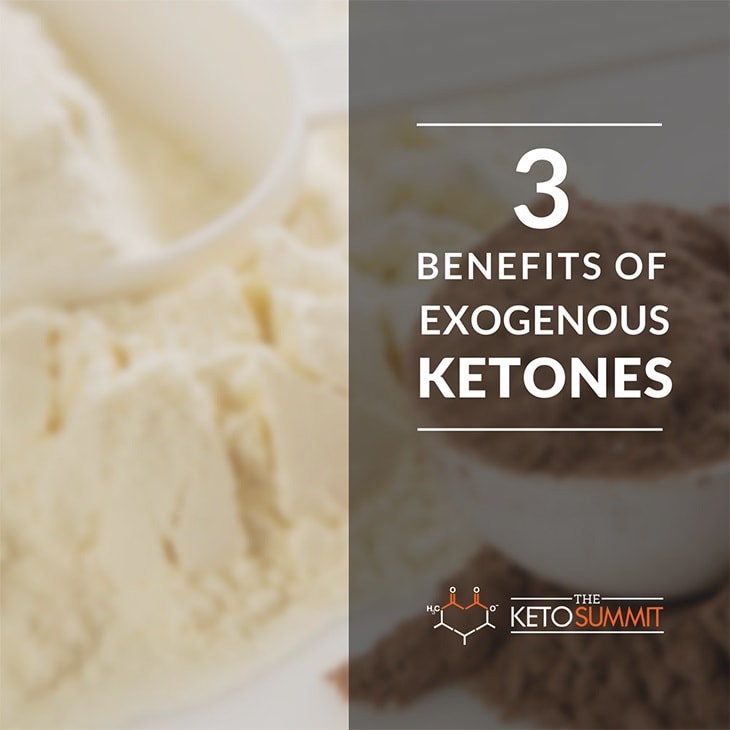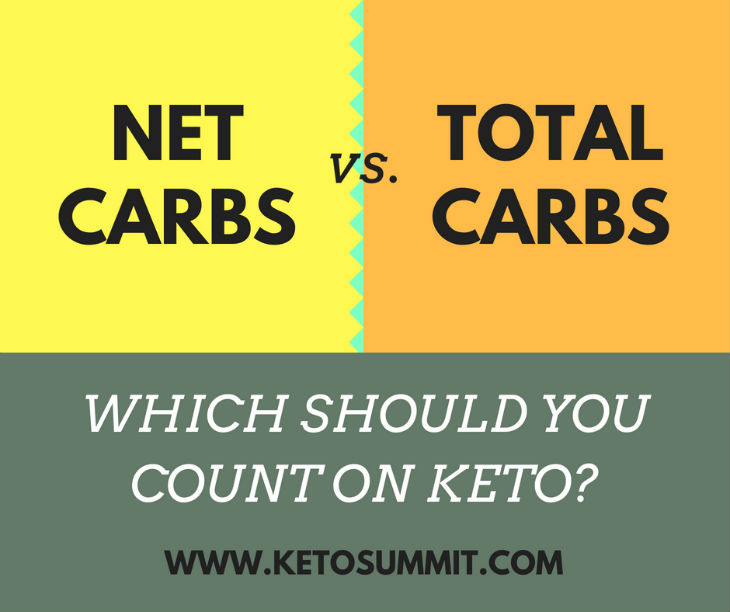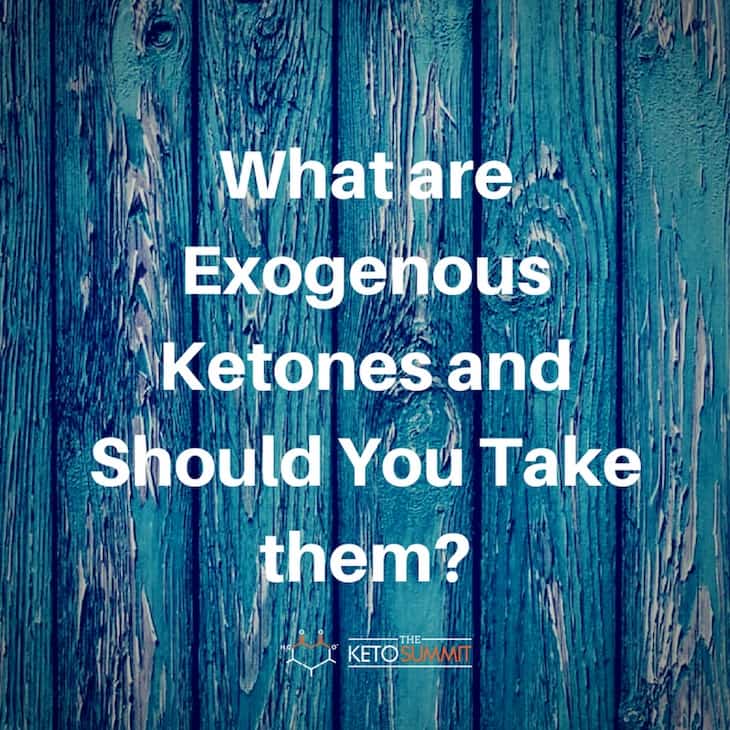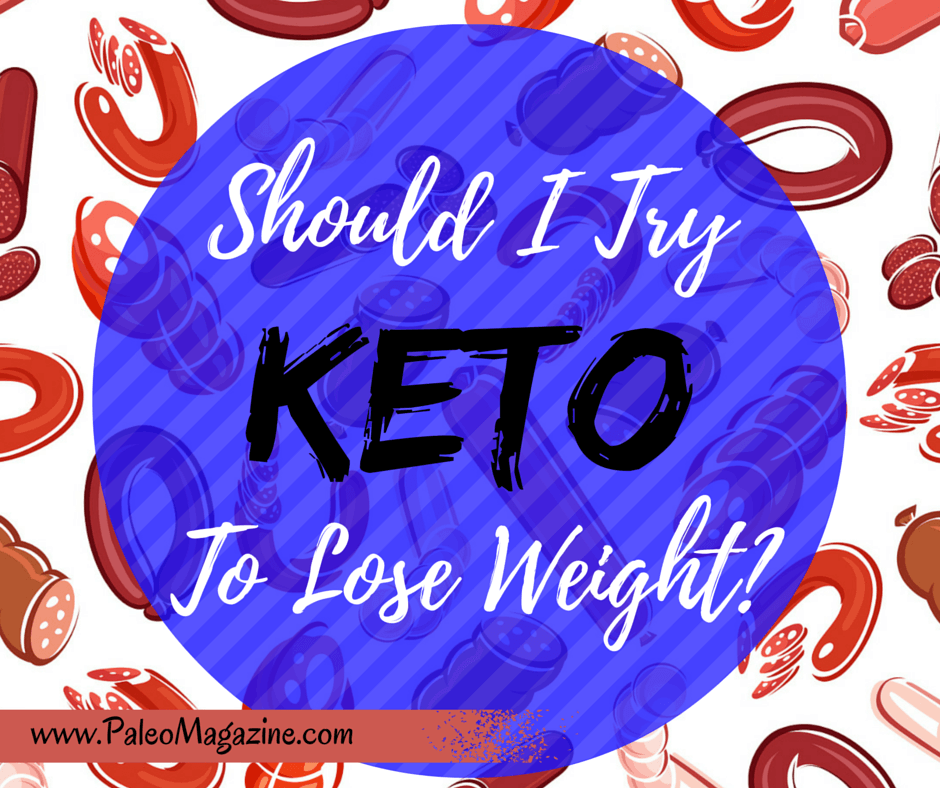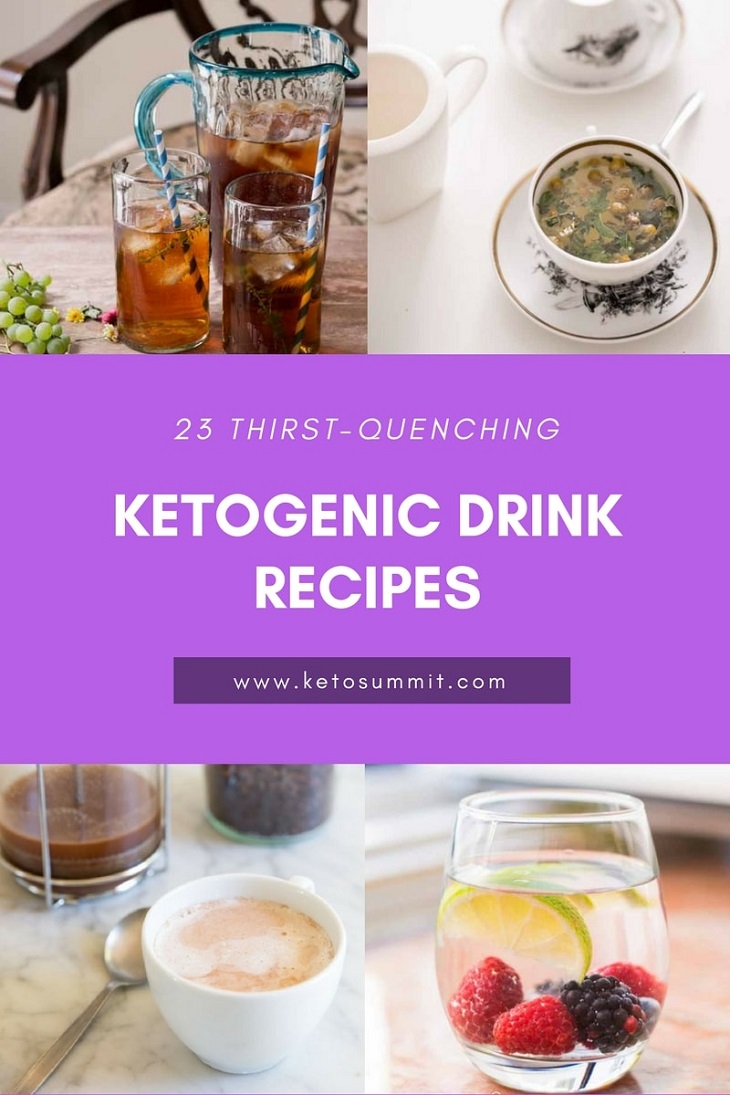003: Alex Cunningham on 3 Benefits of Exogenous Ketones
Alex Cunningham was born and raised in San Francisco and graduated from Villanova University with a degree in Chemical Engineering. He’s passionate about nutrition, breaking down health myths, trends in the health food industry, and Bay Area sports. Alex is the Head of Partnerships for Perfect Keto, a ketogenic nutrition company.
Watch The Keto Summit Show On YouTube:
In this episode, Alex Cunningham and Louise cover the following topics:
- What are exogenous ketones?
- Can you just eat junk food, take some ketone supplements and still lose weight?
- What are the top 3 direct benefits of exogenous ketones?
- What happens if you stop taking exogenous ketones
- MCT vs exogenous ketones
- Can exogenous ketones help with cheat days?
- Where to get Perfect Keto’s exogenous ketones
Featured Guest
Alex Cunningham
Links
Net Carbs vs Total Carbs – Which Should You Count On Keto?
If you’re just starting out on the Keto diet, your head might feel like it’s swimming with numbers.
In particular, you’re probably confused about carbs on keto. What’s the difference between net carbs and total carbs? Which should you be counting on Keto?
Check out our 2-minute video for a quick answer and then read the post for more details:
We’ll clear up all these issues and more for you today.
For starters, we’ll clarify the difference between net carbs and total carbs, so you can see why this distinction matters when you’re following the Ketogenic diet.
Continue reading
What are Exogenous Ketones and Should You Take them?
You’ve probably heard them mentioned on various keto diet blogs: exogenous ketones
There are many misconceptions surrounding exogenous ketones – they’ve been getting a reputation as a “magic bullet” or “shortcut” to ketosis, weight loss, and other health benefits…all without needing to follow a keto diet.
But is this really true? While they certainly have a variety of uses and benefits, we’re going to clear up the facts about exogenous ketones for you in this article (plus video).
Q&A Video on Exogenous Ketones
We recently did a rapid-fire questions round with Alex Cunningham from Perfect Keto, and he answered your most common questions on exogenous ketone supplements:
Here are the questions covered:
- It seems that it would help with brain power energy but not be helpful with weight loss as we would stop burning our own fat to make ketones… is that true?
- Why do exogenous ketones have to be so salty?
- Do they really get you into ketosis? And within an hour or so?
- Is it better to do ketosis naturally or with a supplement?
- What do you personally use ketone supplements for?
- What’s the difference between MCT oil and ketone supplements? Does MCT oil boost ketone levels?
- Can ketone supplements help you lose weight?
About Alex:
Alex was born and raised in San Francisco and graduated from Villanova University with a B.S. in Chemical Engineering. He’s passionate about nutrition, breaking down health myths, trends in the health food industry, the piano, and Bay Area sports. Alex is the Head of Partnerships for podcast episode you feel like you’d like to try exogenous ketones a try, you can check out our very own Keto Upgrade.
What are Ketones?
Let’s go back to basics a bit…when you go on a Keto diet, you restrict net carbohydrate intake to below 20-25g per day.
And after a few days…
Your blood glucose levels fall as you deplete your glycogen stores and your cells can’t rely on glucose as their main fuel source anymore. There just isn’t enough to meet their needs.
You effectively force your body to start burning stored fat.
And one of the by-products of your liver breaking down the fatty acids is ketone bodies.
While many of your cells can use fatty acids and glycerol directly as fuel, your brain cells cannot. And so in the absence of glucose, your body will send ketones to your brain to fuel it.
These ketones are produced in your liver through the breakdown of fatty acids in a process called ketogenesis.
What are Exogenous Ketones? And how are they different from those produced in your body?
There are actually two different types of ketone bodies….
The ones your body produces naturally are called endogenous ketones.
And the artificially produced ketones you take in the form of a powder/pill/oil supplement are called exogenous ketones.
Endogeneous ketones come in 3 varieties of molecule…
- Acetone
- Acetoacetic Acid
- Beta Hydroxybuyrate (this actually gets converted to one of the previous two molecules before your body uses it)
…while exogeneous ketones are usually in the form of Beta Hydroxybuyrate
- Why? Because it’s the easiest molecule out of all 3 natural varieties to turn into a nutritional supplement
Now that we’re clear about what the different types of ketones actually are, let’s dive into the different types of ketone supplements…
The 3 Types of Real Ketone Supplements (and a FAKE one)
If you’re looking out for keto supplements to buy, you’ll likely come across these four types.
Type 1 – Ketone Salts
This is the type that most folks who use ketone supplements end up buying.
They’re made of Beta Hydroxy Butyrate combined with a salt (like sodium or potassium) and that’s where the name comes from.
Registered Dietitian Justin Robinson, RD explains, “Ketone salts are commercially available, relatively affordable (~$4/serving) and palatable (taste similar to sports drinks). They have only a mild impact on ketone levels, usually raising blood ketone levels to around 1 mmol, and carry a high salt load (as the ketone body chemically needs to be attached to sodium, potassium or magnesium).”
Type 2 – Ketone Esters
These are currently used mainly in research by scientists – but you won’t be missing out on much by avoiding them.
Although they raise your blood ketone levels considerably more than ketone salts, they have some disadvantages. Dr. Stephen Phinney, M.D., PhD and Dr. Jeff Volek, PhD RD explain, “The keto-esters are more appropriate for delivering higher doses of BOHB, but with repeated dosing can push the limits of taste and GI tolerance.”
In other words, they also have a very strong and unpleasant taste (making them hard to swallow) and can cause digestive distress.
Type 3 – Ketone Oils
The most common type of ketone oil is MCT oil (aka Medium Triglyceride Oil).
It’s slightly different to the other types of supplement, because MCTs aren’t actually ketones (although your body converts them into ketones).
Once the MCT oil enters your body, it gets transported to your liver, where it is broken down into ketones.
Functional Nutritionist Dr. David Jockers, DNM, DC explains, “MCT oil is a concentrated extract from coconut oil. It is significant because when consumed, it is very quickly converted into ketones with very little metabolic demand from the body. It is almost like consuming table sugar, in fat form, and without the massive crash. Instead you get nice steady energy without any negative side effects.”
Unlike the ketone supplements mentioned above, it doesn’t have such a rapid or strong impact on your blood ketone levels.
NOT REAL – Raspberry Ketones
These are a common sight in the supplement aisles of pharmacies and health stores – and they have nothing to do with ketone bodies or ketosis, and there’s no credible science suggesting it helps with weight-loss.
So which of these 3 Ketone Supplement Types is most effective for weight loss?
One study compared all 3 types of ketone supplements and found ketone esters to initially be the most effective… but by the time 4 weeks had gone by, the ketone salts had caught up in efficacy.
But do you really need to buy ketone supplements at all?
You decide: in the next sections, we’ll go over what health benefits you can expect from ketone supplements and the best ways to use them.
A popular question that gets asked a lot is this…
Can you eat junk and just take exogenous ketones?
You’ll have seen plenty of articles on the health benefits of ketosis.
But you can’t just eat a standard American diet (SAD) filled with carbs all day and hope that taking exogenous ketones will rescue your health!
Raising your ketone levels by carb restriction (nutritional ketosis) gives you greater health benefits than simply taking exogenous ketones.
So remember to eat a healthy, nutritious Keto diet and supplement with exogenous ketones to get additional benefits.
Nutritional ketosis vs Exogenous ketones:
Exogenous ketones could you give an increased boost in energy
You’ll likely feel a slight energy boost from taking ketone supplements.
Whether you’re taking ketone salts or MCT oil, your body can convert these into usable energy sources quite quickly which is why your energy lifts.
But in the long term, being on a healthy keto diet is still a better option. Eating well will help you regain the ability to use your body’s fat stores as fuel which frees you from the energy spikes and dips of having a glucose-dependent metabolism.
This metabolic flexibility means your body always has a supply of energy available, whether it’s from your fat cells or the foods you eat.
Exogenous ketones could provide greater mental clarity
Ketone supplements could also increase your mental clarity by providing this quick source of energy for your brain cells.
However, the real key to eliminating brain fog is the keto diet.
Lack of available glucose causes brain fog when you’re metabolically inflexible – your brain cells can’t switch to using ketones when there’s a dip in glucose levels.
By regaining the ability to use fat as a fuel source (also called becoming “keto-adapted”) you’ll have a clearer mind without being dependent on anything.
Exogenous ketones could aid in weight loss
It’s possible that taking keto supplements could reduce your appetite.
And feeling less hungry could prevent you from overeating and bingeing on high-carb foods.
But just relying on ketone supplements is not a great option if you’re looking for long-term weight loss especially since your body also needs nutrients as well as exercise, sleep, etc.
For more about losing weight on keto, check out our article here.
Exogenous ketones could have therapeutic benefits
There are a lot of studies being done in this area. From potentially reducing anxiety, managing cancer, and even to help with Alzheimer’s.
While the research isn’t conclusive yet, please note that most of the studies with exogenous ketones revolves around ketone esters and typically involves a keto diet in addition to the supplements.
The BEST Ways to Use Ketone Supplements
Here are main occasions when ketone supplements can be useful:
When you’re experiencing keto flu
It can be tough getting started with keto – as your body adapts to using ketones instead of carbs for energy, you can feel irritable, fatigued and experience headaches. These symptoms are commonly known as keto flu.
Luckily, taking keto supplements can lessen the symptoms and make your transition into a keto lifestyle easier.
As an energy booster if you’re an athlete
Especially if you’re doing endurance exercise, taking ketone supplements can be useful for helping you exercise for longer. By increasing your ketone levels, your body can switch to using ketones after it’s exhausted all the available glucose – helping you keep going for longer without resorting to carb loading.
If you need to raise your blood ketone levels
For example, if you’ve dropped out of ketosis because you ate a meal with too many carbs, using ketone supplements combined with the keto diet could help you get back into ketosis faster.
To boost your brain function
If you need to quickly increase your mental productivity, try taking ketone supplements. It’ll give your brain a quick boost of energy in the morning to keep you focused.
Best Exogenous Ketone Supplements
If you’re ready to try exogenous ketone supplements, then which one should you go for?
Here are a few popular brands:
- KetoUpgrade
- Perfect Keto
- Pruvit
Pruvit
Pruvit keto options are seemingly unlimited, and the claims they have for their products are pretty incredible. People giving Pruvit keto reviews seem to be pleased with the product as well, giving credence to the company’s claims.
Pruvit claims that when you use their products you can reach nutritional ketosis within one hour. Research does show that use of exogenous ketones can result in a rapid increase in your blood ketone levels.
When it comes to exogenous ketones from Pruvit, there are two options: Pruvit Keto OS and Keto OS Max. Let’s look at both of these now.
Keto OS
Pruvit’s Ketone Operating System is better known as Keto OS or as KETO//OS.
Keto OS is a drink mix that is made with BHB salts (beta-hydroxybutyrate) and MCT oil along with flavoring, stevia, malic acid and in some cases, there is also caffeine.
BHB is a ketone body that provides the human body with energy. When combined with a mineral like potassium, sodium or magnesium BHB is easily absorbed by the human body.
The MCT oil in Keto OS helps to slow digestion, but it is also absorbed by the liver and converted into ketones.
When BHB and MCT oil are combined, they have been shown to raise blood ketone levels even if there had been no change in diet.
Keto OS comes in three flavors:
- Orange Dream Charged
- Orange Dream Caffeine Free
- Chocolate Swirl Charged
When it comes to Keto OS reviews, they are mostly positive with the only common thread of negativity being that they are priced high.
You should know that the 3.0 blends of Keto OS do not contain MCT oil, but they do offer amino acid, fiber and other digestive aids.
Keto Max
The other popular product from Pruvit is their Keto Max exogenous ketone supplement.
Keto OS Max contains a newer blend of BHB salts than what is found in the original Keto OS product. Pruvit says that this new blend allows for faster absorption allowing you to experience ketosis even sooner.
Keto Max doesn’t offer the benefits of MCT oil or digestive fibers, but it does contain amino acids in the form of L-Taurine and Fermented L-Leucine. There is also flavoring, erythritol and stevia, caffeine and natural coloring in some options.
Keto OS Max comes in several flavors, including:
- Splash Charged or Caffeine Free
- Raspberry Lemon Charged or Caffeine Free
- Swiss Cacao Charged or Caffeine Free
- Maui Punch Charged or Caffeine Free
You can order both Keto OS and Keto OS Max for a one-time shipment, or you can subscribe to shipments and get your exogenous ketone supplements delivered monthly.
Keto OS Dangers
There are no real dangers to using exogenous ketones like those found in Keto OS or Keto OS Max, but you can definitely expect to experience typical Keto Flu symptoms.
You might experience digestive issues like upset stomach, gas or diarrhea (though the options with MCT oil can help to alleviate this problem).
Bad breath is another often experienced side effect to utilizing exogenous ketones, as elevated ketone levels can cause “keto breath.”
There hasn’t been a lot of long-term research done of the effects of exogenous ketone supplements, especially when the person using them isn’t following a keto diet as they should.
Drs. Phinney and Volek add, “[In] nutritional ketosis the liver makes a steady supply of ketones and continuously releases them into the circulation. In contrast, most ketone supplement protocols involve bolus intakes that don’t mimic the endogenous release pattern. The extent to which this impacts metabolic and signaling responses across different tissues remains unclear.”
If you are willing to put in the necessary work to get the results of a keto diet, you shouldn’t need to use exogenous ketone supplements, but if you do, at least you know where to start.
Ready to start the Keto diet…?
Exogenous ketones can be a great addition to the Keto diet. But please remember that entering nutritional ketosis through your diet is much more beneficial than just using exogenous ketones.
If you’re ready to start eating a Keto diet, then check out our getting started article here.
Should I Try Keto To Lose Weight?
This isn’t some article persuading you that the ketogenic diet is the best one in existence and that you should go try keto today or you’ll be missing out on some great life-changing phenomena! But, if you have been considering a ketogenic diet for weight loss, then it’s in your interest to learn the facts and figure out if you’re one of the people that could benefit from a keto diet.
Jump to a specific section of “Should I Try Keto To Lose Weight”
Is Diet Coke Keto?
Tasty, energizing, low in carbohydrates and zero sugar – the perfect keto drink. Or is it? What I have described is Diet Coke, one of the most popular low-calorie sodas on the market.
But can you drink it safely on a keto diet?
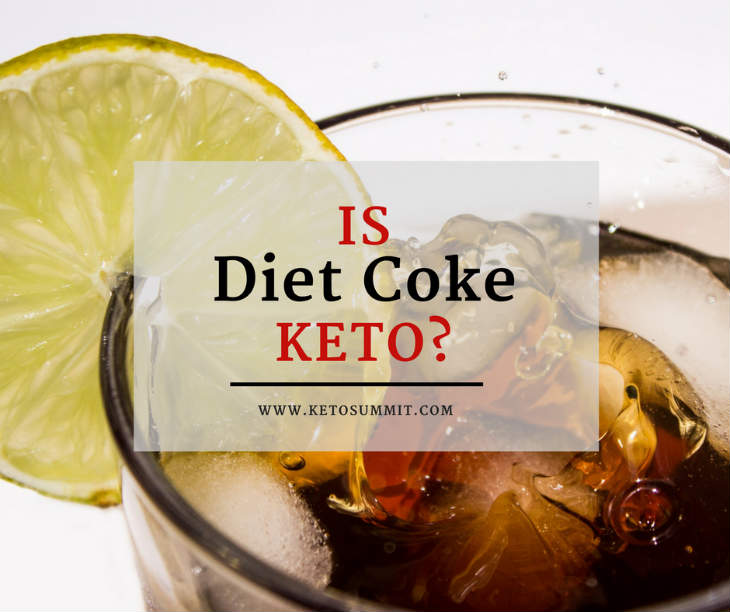
It’s Delicious and Low Carb…So Can I Drink Diet Coke on Keto?
I’m going to jump the gun and just state the obvious…
Diet coke isn’t healthy, but the occasional Diet Coke will not ruin your keto diet!
What you need to understand though, is that diet sodas cannot be justified from a nutritional standpoint. These drinks are not healthy and should not be a regular feature of any healthy diet.
Beginners on the keto diet often think it is OK to eat unhealthy foods as long as it’s low carb and keeps your ketone levels high.
You might be able to get some results that way in the short term, but your long-term health will be affected.
Keto is a great way to help you lose weight, but you should achieve ketosis using a healthy keto diet. That means you have to cut out unhealthy foods like Diet Coke, or at least minimize your intake dramatically.
Bottom Line:
Avoid Diet Coke on Keto – it’s not nutritious even if it is low carb.
What About Coke Zero, Diet Dr. Pepper or Pepsi Zero with your Keto diet?
We’ve already given away the punchline that Diet Coke isn’t ideal for a healthy lifestyle. But is it okay for your Keto diet to have Coke Zero, Pepsi Zero or other popular brands of cola?
To best answer this question, let’s first look at their nutritional values.
Coke Zero, Diet Dr. Pepper and Pepsi Zero all contain no carbohydrates, fat or protein, and have zero calories. They are similar to Diet Coke in this way.
All of them contain small amounts of Sodium and Potassium – but only 2% of the recommended Daily Value. There are much more efficient ways to get these nutrients, so we can’t recommend them on this basis.
There is one other important thing these colas have in common: artificial sweeteners.
Diet Dr. Pepper and Pepsi Zero both contain aspartame, the same artificial sweetener found in Diet Coke.
Coke Zero is sweetened with both aspartame and acesulfame potassium (Ace-K). Ace-K is another high-intensity sweetener, and is about 200 times sweeter than sugar. And like aspartame, it is controversial.
Ace-K has been declared safe for human consumption up to 15 mg/kg/day (equivalent to about 20 cans of Coke Zero per day). Still, some animal studies indicate it may have unwanted neurological or metabolic effects. (1, 2)
So it’s apparent that these alternative colas aren’t any better, and like Diet Coke, they could derail your healthy lifestyle if consumed regularly.
As I wrote above, I’m stating the obvious here, but you might want to dig a bit further…

Diet coke could make you fat…
I know this is a controversial topic, so let me explain.
Yes, Diet Coke does not contain any calories and calories do play a part in weight-loss and weight-gain. So, technically, Diet Coke in the abstract doesn’t make you gain weight.
But your weight isn’t just determined by calories in and calories out…
In particular, the artificial sweeteners in diet sodas (like aspartame in Diet Coke or sucralose in diet Pepsi) could be to blame. (1)
As the author of this mini-review (1) explains:
[W]hile people often choose “diet” or “light” products to lose weight, research studies suggest that artificial sweeteners may contribute to weight gain.
For example, the San Antonio Heart Study found that people who drank diet soda had higher BMIs. (2)
And in another study where participants replaced regular sugary soda with diet soda, there wasn’t a meaningful reduction in BMI over the length of the study (25 weeks) except for the participants with the most weight to lose. (3)
There are several possible reasons for the link between diet sodas and weight-gain:
- Artificial sweeteners can enhance appetites just like regular sugar. (4) Health Coach Nathan Marsala notes, “Artificial sweeteners alter our cravings and the reward centers in the brain and gut that results in cravings for more sugary foods and simple carbohydrates.”
- Compensatory overeating: you are likely to eat more calories when you drink diet sodas to overcompensate for the zero calories in your drink. (5) Registered Nurse Juli Romero, RN calls this the “Hamburger, large fries, and a diet soda please” syndrome. She explains, “Consuming artificial sweeteners and no calorie drinks can lead to eating more food and calories due to feeling ‘ok’ with larger portions because of the calories ‘saved’ by having a diet drink.”
- Lack of nutrients in artificial sweeteners could make you want to eat more because you don’t feel satisfied after eating. (6)
Bottom Line:
Even though Diet Coke has zero calories, it could still lead to unhealthy eating habits, overeating, and potential weight gain.
And Diet Coke might kick you out of ketosis
Even if you think you can control your appetite and not overeat, it’s possible that drinking Diet Coke could knock you out of ketosis.
Debates about what will and won’t lower your ketone levels are a constant feature of the keto diet community.
While there’s no definitive scientific evidence, several n=1 self-experiments have shown that diet sodas could lower your ketone levels. (7, 8)
The reason for the decreased ketone levels could be because artificial sweeteners like aspartame in Diet Coke raise insulin levels and thereby decreases ketone levels.
So, when you drink diet sodas like Diet Coke, you could be:
- Increasing your insulin levels
- Reducing your ketone levels.
- Knocking yourself out of ketosis.
Bottom Line:
Diet coke may be tasty and have no calories or carbohydrates, but it could raise your insulin and thereby reduce your ketones levels. If you are looking to boost your ketone levels, listen in here.
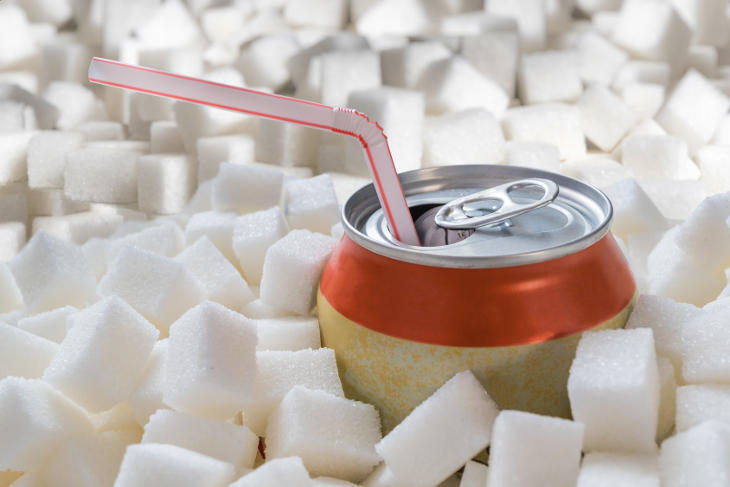
Is Aspartame Safe? The Jury Is Still Out
Aspartame is the sweetener in Diet Coke as well as coke zero, and it’s also known by the brand names NutraSweet, Equal, Sweet One. It has been used as an artificial sweetener for a long time, and countless hours of research have been dedicated to researching it.
Dr. Christiane Northrup, M.D., says that Diet Coke has an addictive quality. “It is a combination of aspartame, which is an excitotoxin that actually kills brain cells, but before they die, there’s this sort of heightened jolt to the brain, aspartame and caffeine. And caffeine, of course, is a neurotoxin, but it’s okay in small doses. But the combination of aspartame and caffeine is particularly addictive in certain kinds of brains.”
Despite all the scrutiny, it’s still unclear whether aspartame is safe or not. In general, there seem to be 3 potential concerns about aspartame:
Aspartame Leads To The Creation of ‘Free Methanol’
One worrying effect of aspartame is the way it is broken down into methanol in your body. (9) As a chemical, methanol occurs naturally and can be found in other sweet drinks, but the methanol found in aspartame works in very unnatural ways.
The key difference between naturally occurring methanol and the methanol found in aspartame is how it is processed. Natural methanol is generally bound to pectin, which allows it to pass through the digestive system without entering the bloodstream.
Methanol found in aspartame is only lightly bound to the phenylalanine molecule and separates easily, becoming ‘free methanol’. This molecule of methanol can then easily be converted to formaldehyde, a known carcinogen. (10)
However, many other foods (including fruit juice) create way more methanol than aspartame-sweetened drinks. So the levels found in Diet Coke is not considered dangerous.
Aspartame Could Decrease Serotonin Levels
One of the compounds aspartame is broken down into is phenylalanine, and the presence of phenylalanine above natural levels could decrease serotonin levels. (12)
Reduced serotonin levels have been linked to a variety of disorders, including depression. (13)
But I Heard Aspartame Causes Cancer
The American Cancer Society (ACS) states:
“Most studies in people have not found that aspartame use is linked to an increased risk of cancer.” (14)
And the European Food Safety Authority (EFSA) found no “potential risk of aspartame causing damage to genes and inducing cancer” after examining hundreds of studies. (15)
While there have been some studies linking aspartame to cancer, the vast majority of studies seem to suggest no link is present. And that’s what the ACS, FDA, and EFSA have based their recommendations on.
Bottom Line:
There’s not much good scientific evidence linking aspartame to serious health issues, but that doesn’t mean you should go out and consume lots of it. Just because it might not be harmful doesn’t mean it’s healthy!
How many carbs are in a Diet Coke?
The nutritional label on a Diet Coke reads 0 Calories, 0g Fat, 40mg Sodium, 0g Total Carbs, 0g Protein. So there are actually zero carbs in Diet Coke.
But while a low carb count is generally what we shoot for on Keto, we need to keep the big picture in mind.
Diet Coke contains several problem ingredients: artificial sweeteners, preservatives, and colorants, none of which are optimal for sustaining a healthy lifestyle.
So definitely keep your eyes on the carbs, but we also want to avoid mysterious and hard-to-pronounce ingredients that may have negative effects on our health.
Do artificial sweeteners affect ketosis?
There is some evidence that suggests that artificial sweeteners do affect ketosis – and not in a good way.
Some research shows that artificial sweeteners impact the brain’s ability to regulate appetite. (1) Researcher Greg Neely, Associate Professor from the University of Sydney notes that, “When sweetness versus energy is out of balance for a period of time, the brain recalibrates and increases total calories consumed.”
One of the reasons we love a ketogenic diet is that it tends to suppress the appetite, which contributes to its effectiveness for weight loss and improved metabolic health. Artificial sweeteners may actually counteract this effect, causing you to overeat, thereby increasing blood sugar and reducing ketones.
And as noted above, aspartame – the sweetener found in all of the leading diet colas – is suspected of raising insulin levels, which can also decrease ketone production.
Ace-K, one of the sweeteners in Coke Zero, is low in carbohydrates, but it might still have a negative effect on ketosis. Some research on rats found that Ace-K, like aspartame, can increase the body’s insulin production. (1)
The same is true with sucralose, a sweetener commonly found in baked goods and other processed foods. A 2013 study found that eating sucralose caused increased blood sugar and insulin levels. (1)
And there is yet another way artificial sweeteners can affect ketosis. They can disrupt the beneficial flora in the gut that helps to regulate blood sugar and keep pathogens at bay. (1,1)
The common thread here is worsened blood glucose and insulin regulation. Anything that increases blood sugar or insulin has the potential to reduce ketone production and kick you out of ketosis.
Drink these Keto sodas instead of Diet Coke:
It is not all doom and gloom though. There are many keto-friendly drinks.
These keto-friendly sodas have been crafted to give you that tasty drink you crave, while keeping you firmly in fat burning ketosis:
- LaCroix, a sweetener-free fizzy drink that uses a blend of natural flavors.
- Homemade sodas, where you combine sparkling water with the flavorings and sweeteners of your choice. If you are really concerned about what goes into your body, this is the best option. For specific recipes, check out this massive list of keto drink recipes.
As Registered Dietitian Nutritionist Michelle Dudash, RDN, observes, “The end goal…should be to reduce the amount of soda, regardless of the type. It’s prudent to replace artificially sweetened foods with more nutrient-rich, lower sugar foods.”
Bottom Line:
Skip the Diet Coke and make your own Keto drinks instead. Or else give flavored sodas like LaCroix a try.
Pinterest Image For Is Diet Coke Keto?
Please pin the image below so that you and others can quickly and easily remember if Diet Coke is good for Keto.
